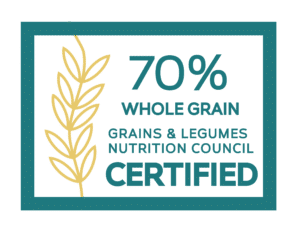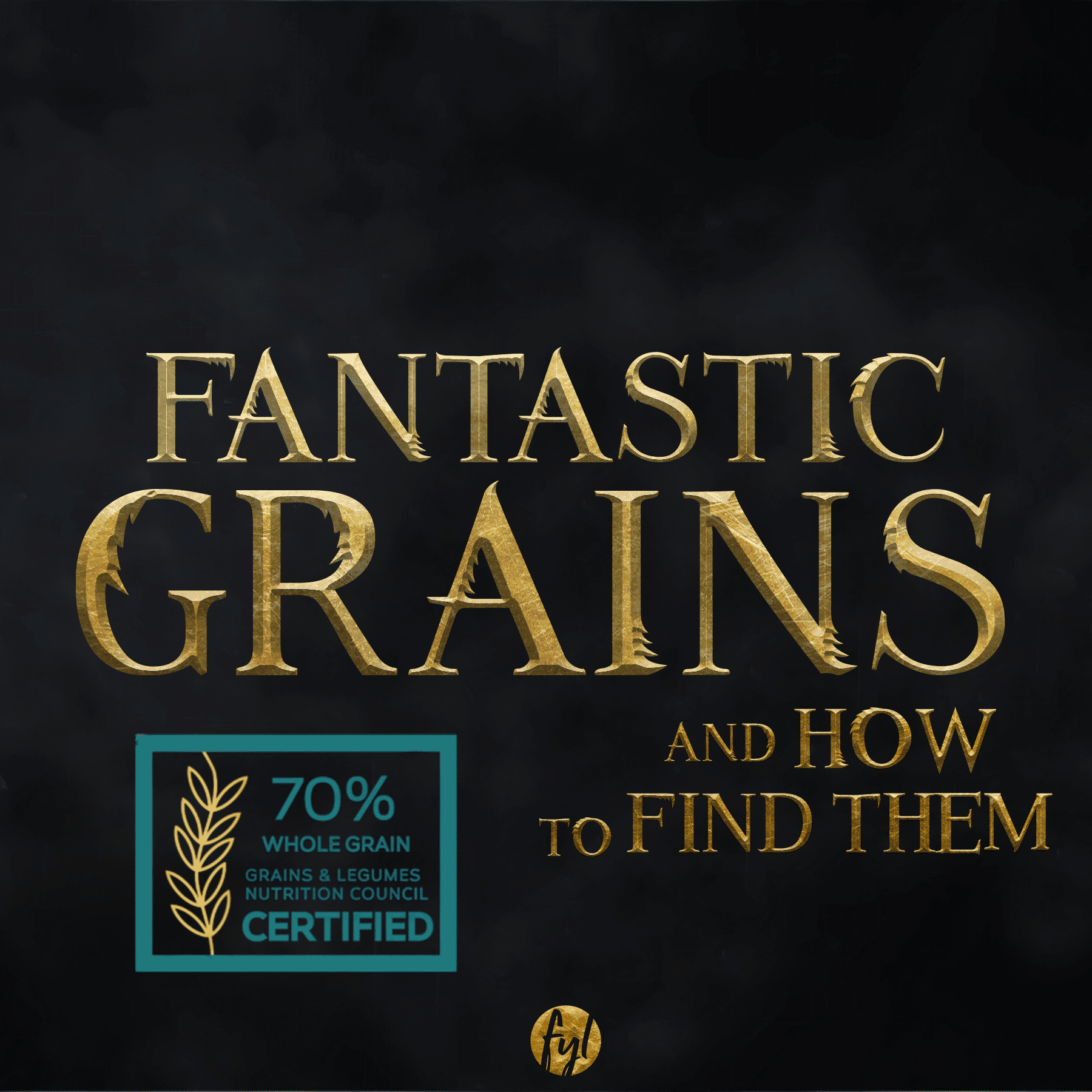Before you ask, no… This is not a blog about the Harry Potter prequel, but our dietitians think that whole grains are pretty magical none-the-less! The Australian Dietary Guidelines recommend that we should ‘eat more whole grain foods’, however, many of us do not know what constitutes a ‘whole grain’ and which products are the best source. Well, the Grain and Legume Nutrition Council (GLNC) agree that this message is often confused; this is (in part) a result of lack of regulation around labelling a food as a ‘whole grain’ product, causing great variation in whole grain content between products with this label attached. This makes it hard for you, the consumer, to decide which is the best choice.
As a result, the GLNC has developed a voluntary code and a new certification stamp which manufacturers may use to help the consumer distinguish between the whole grain content of different products.
Who are the Grains and Legume Nutrition Council?
The GLNC is a not-for-profit company, recognised as a health promotion charity, which aims to promote the benefits of grains and legumes, as an independent source with no vested interested. They use evidence-based information to promote the benefits of grains and legumes. (Grains & Legumes Nutrition Council, 2020)
What is Their Certification Stamp?

- Be a core food: meaning the foods needs to come from one of the five food groups, excluding discretionary food items high in added sugar, saturated fats and salt
- Considered a healthier choice: compared to other foods in the same category, using nutrient criteria
- Meet the whole grain criteria: containing at least 8g of whole grain AND a minimum of 25% of whole grain ingredients
- Declare the percentage of whole grain in the ingredients list: in accordance with Food Standards Code 1.2.10
- Be a contributor product: meaning the food company must contribute fees based on their annual turnover, in return for certification and advertisement benefits. (Grains & Legumes Nutrition Council, 2020)
So, why should we be choosing whole grain foods?
Why Choose Whole Grain Foods?
Common grain foods include oat, wheat and rice. Others include rye, barley, corn, sorghum, triticale, spelt and freekeh. Whole grains are a nutrient-rich food source which provide several key nutrients including magnesium, folate, thiamin, iodine, iron and phytochemicals, which play a role in disease prevention. They are also an excellent source of dietary fibre which promotes digestive health, lower cholesterol levels and increases feelings of fullness following a fibre-rich meal. (Harvard School of Public Health, 2020)
Whole grains have also been shown to reduce mortality by 23% when individuals consume an average of three serves per day. (Grains & Legumes Nutrition Council, 2020). Plus, the research also says that they can reduce the risk of developing conditions such as type 2 diabetes, cardiovascular-related conditions and colorectal cancer. (Harvard School of Public Health, 2020)
GLNC Whole Grain Certified Products
So, what are our recommendations for breads and cereals which are certified by the GLNC? Here are some of our top picks!
Bread Products
| Product Name | Fibre/100g | Wholegrain Content |
| Burgen Wholemeal & Seeds | 10.8g | 38% Wholegrain |
| Baker’s Delight Cape Seed Loaf | 9g | 39% Wholegrain |
| Tip Top 9 Grain Wholemeal | 8.7g | 44% Wholegrain |
| Abbot’s Village Bakery Grainy Wholemeal Bread | 7.2g | 47% Wholegrain |
Cereal Products
| Product Name | Fibre/100g | Wholegrain Content |
| Uncle Toby’s Shredded Wheat | 13.2g | 100% |
| Uncle Toby’s Traditional Rolled Oats | 9.2g | 100% |
| Uncle Toby’s Weeties | 12.7g | 99% |
| Uncle Toby’s Vita Brits | 12.6g | 99% |
| Uncle Toby’s Super Blends Tumeric and Coconut | 16.9g | 76% |
So, when you are next at your local supermarket, look out for the GLNC certification stamp to assist you in selecting a product which is high in whole grains! Share your favourite GLNC certified products with us by tagging @FuelYourLife on Instagram. Looking for more nutrition advice to better your health? Head to our website and get in contact with one of our dietitians today!







